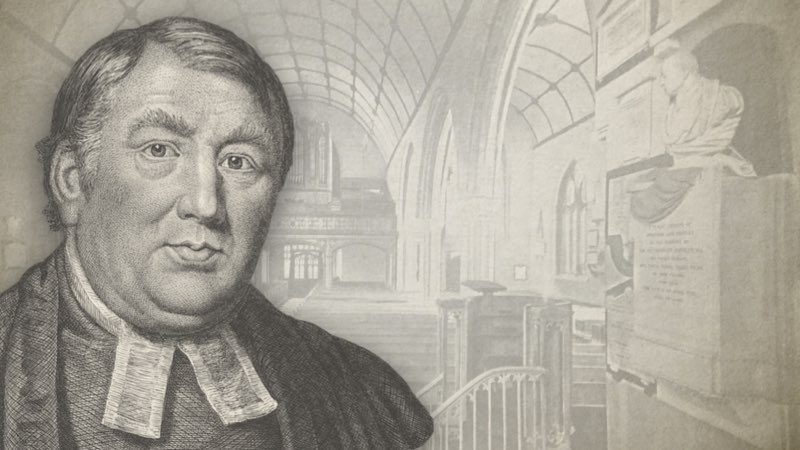
July 19—Morning Devotion
“Without me ye can do nothing.”—John 15:5
Dearest Jesus, I know this in theory, from thy gracious teachings, as well as I know that I am by nature a sinner; but I am for ever failing in this knowledge, when I come to put it into practice. Teach me, Lord, how to preserve the constant remembrance of it upon my mind, that I may never go forth to the holy warfare to subdue a single foe but in thy strength, and never make mention of any thing but thy righteousness, and thine only. Be convinced, my soul, every day, more and more, of this most precious truth, and behold it proved from all the circumstances around thee. See and remark the total inability either of God’s judgments or God’s mercies to induce the least alteration upon the heart of man, without his grace. Behold the prosperous sinner bathing in a full river of blessings, himself in health, his circumstances flourishing, his children like olive-branches round his table, wealth pouring in upon him from every quarter; and yet he lives without God, and without Christ in the world; and as he lives, so he dies, in the vanity of his mind. See him amidst distinguishing preservations, in battles by sea or land, still preserved, while floating carcasses, or opened graves, are all around him: do these things bring his heart to God? Not in the least. The sum total of his character may be comprised in a few words; “neither God is not in all his thoughts.” Look at him in the opposite side of the representation; let such an one be visited with chastisements, in his own person sickness, in his family misery, in his substance want; in short, in all that concerns him, a life of sorrow, care, anxiety, disappointment, ruin. Perhaps to all these, a body long the dwelling-place of some loathsome disease, under which he groans, and at length dies, and dies the same unawakened sinner as he had lived. And suppose these accumulated evils had been distinguished also with some more peculiar maladies, in perils in the sea, in perils in the war, in perils among men; nay, let him be maimed in his limbs, let him be rotting in a prison, let him be worn out with misery from evil upon evil, tike waves of the sea following each other; yet still he continues the hardened, unsubdued sinner under all, and as unconscious of God’s rods as the prosperous sinner before described is of God’s blessings. Are these things so, my soul, and hast thou seen them? Yes, in numberless instances. Oh then, learn, that without Jesus thou canst do nothing. Outward circumstances, unaccompanied with inward grace, leave men just where they found them; and plain it is, that grace alone can change the heart. Lord Jesus, let these loud and crying truths, day by day lead my soul to thee! Be thou all in ‘all, my hope, my guide, my strength, my portion; for “without thee I can do nothing.”
Robert Hawker (1753-1827) was an Anglican (High-Calvinist) preacher who served as Vicar of Charles Church, Plymouth. John Hazelton wrote of him:
“The prominent features…in Robert Hawker's testimony…was the Person of Christ….Dr. Hawker delighted to speak of his Lord as "My most glorious Christ.” What anxious heart but finds at times in the perusal of the doctor's writings a measure of relief, a softening, and a mellowing? an almost imperceptible yet secret and constraining power in leading out of self and off from the misery and bondage of the flesh into a contemplation of the Person and preciousness of Christ as "the chiefest among ten thousand and the altogether lovely." Christ and Him crucified was emphatically the burden of his song and the keynote of his ministry. He preached his last sermon in Charles Church on March 18th, 1827, and on April 6th he died, after being six years curate and forty-three years vicar of the parish. On the last day of his life he repeated a part of Ephesians 1, from the 6th to the 12th verses, and as he proceeded he enlarged on the verses, but dwelt more fully on these words: "To the praise of His glory Who first trusted in Christ." He paused and asked, "Who first trusted in Christ?" And then made this answer: "It was God the Father Who first trusted in Christ."
Robert Hawker on the Biblical Covenants (Complete)
Robert Hawker's Poor Man's Morning Portions




